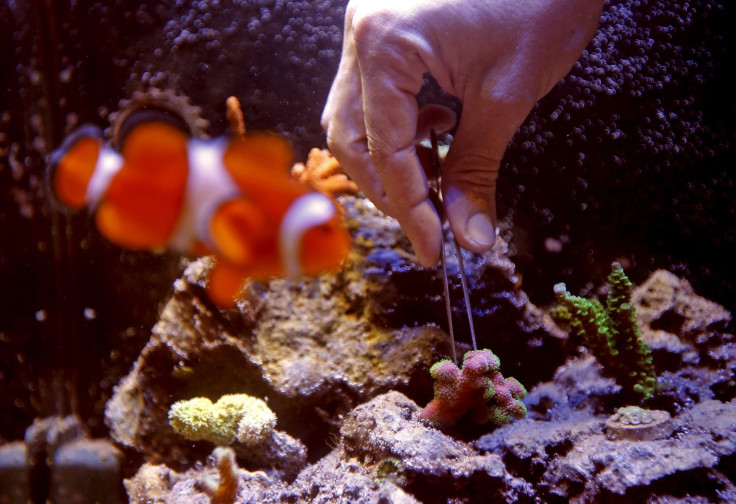Biotech’s entry into the food production market brings positive impact

Biotechnology has reached various industrial areas such as medicine and agriculture. Biotech has paved the way for a lot of breakthroughs in terms of the products and services these industries provide. It has allowed pharmaceutical companies to develop new treatments to fight rare and fatal diseases, saving many lives in the process. It has given farms new ways to cultivate their crops and raise the number of their harvests without disrupting and damaging the environment as well, improving the quality of crops and keeping them toxic-free.
Today, biotechnology has managed to enter deeper into the food industry — particularly in food production. Its involvement in this sector will allow for more ways to tackle the challenge of feeding the entire planet while trying to diminish any environmental issue. As a result, it can lead to the growth of the market, helping it reach billions of dollars while promoting sustainability.
With biotechnologies, scientists can increase their speed and accuracy when it comes to enhancing food and its production methods. Scientists can also now manipulate genes to create new traits for plants, which can, in turn, usher in some advantages and possibilities for the environment and the economy.
Biotech in food production
Biotech in food can create a shift in the process of growing food, especially in lessening the required land for planting. It now introduced foods that have enhanced effects when it comes to the nutrition they offer, leading to a healthier era for mankind. Some of these nutritionally improved food products include cooking oils with reduced trans fats and distinctive fatty acid profiles and corns that contain more amino acids, oils and minerals optimal for feeding animals.
Farmers can also enjoy the benefits of biotech in their farms, as it will help them produce crops while improving the sustainability of their business. It can lower the need for pesticides because a National Center for Food and Agricultural Policy report back in 2005 stated that plants developed with the help of biotech have the resistance against insects and herbicides. These plants brought down the expenses of farmers for production by a whopping US$1.4 billion (AU$1.79 billion), raising net profits by US$2 billion (AU$2.56 billion).
To those who are now eager to look for their options to enter this market, they can start with the following companies that have been making waves lately.
BrightFarms
BrightFarms is an agriculture technology (AgTech) startup based in New York. Its mission is “to improve the health of society and the planet,” and it aims to grow food within local communities so that citizens within that city, town and/or state can consume these foods, reducing the need to look for new lands and to consume fuel and money for the shipping of foods.
The company also offers support in the economy of these communities by investing in local stores and supermarkets. It teamed up with supermarkets such as ACME, Giant and Pick-n-save and built greenhouses within urban and suburban areas. Throughout its operations, it managed to collect US$57.9 million (AU$74.18 million) in equity.
Engender Technologies
Engender Technologies, another startup but based in New Zealand this time, offers a different kind of product. It developed a microfluidic and photonic technology that utilises lasers to separate livestock sperm cells. This particular tool separates bull sperm cells that carry X- and Y-chromosomes, which will then improve the pace of genetic gain and also the cost efficiencies in large animal reproduction.
The company went with lasers to avoid or lower any negative effects or damages on the sperm cells’ fertility rate while letting dairy farmers take control over offspring. It also offers the said technology at a low cost. It already gathered US$6 million (AU$7.69 million) worth of equity funding.
Greenbelt Resources
Finally, there’s Greenbelt Resources Corp. (OTCMKTS:GRCO). With an office in Paso Robles, California, Greenbelt Resources is a biotech company that serves markets which include AgTech — alternative AgTech, in particular. It has developed a specific kind of technology that can convert feedstock such as wastes and biomass from agriculture and food industries into bio-based products like bioethanol and a protein concentrate containing more amino acids.
Greenbelt has created a new solution to address the world’s protein demand with the help of the Andrew J. Young Foundation. A biorefinery will be built and will include the ECOsystem technology of Greenbelt.
The project, which is called the Duckweed Project, will aid farmers with technical knowledge on cultivating duckweed, aquatic plants that contain high concentrations of protein, and selling them as a biofeed to the biorefinery that can convert duckweed through the ECOsystem technology into a protein concentrate to be sold to organic feed mills and makers of food ingredients. Greenbelt is currently raising funds for its products.
Once the refinery is completed, the ECOsystem technology will be expected to generate 500,000 gallons of bioethanol. It will also produce a protein concentrate to be sold to makers of food ingredients and organic feed mills.






